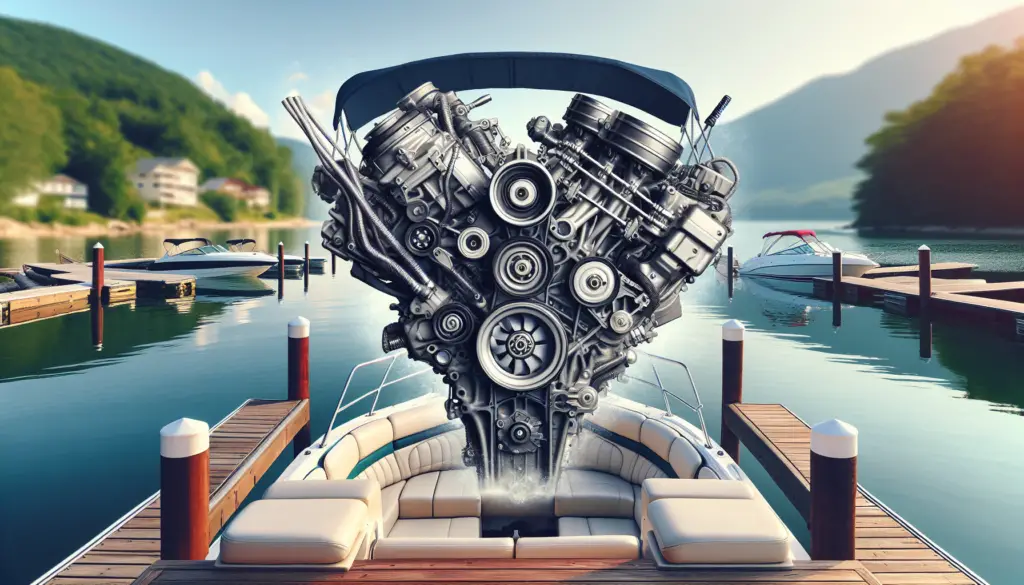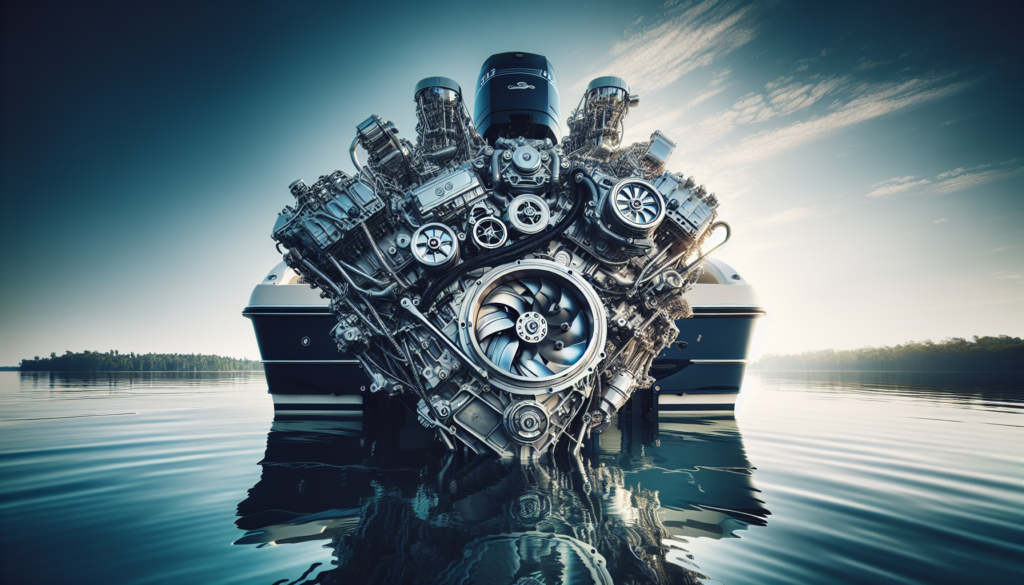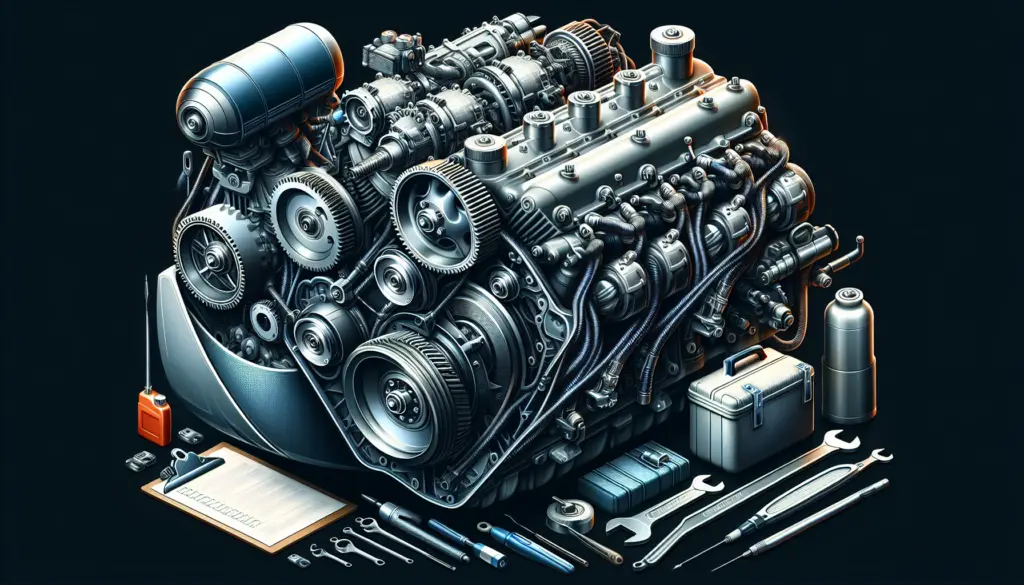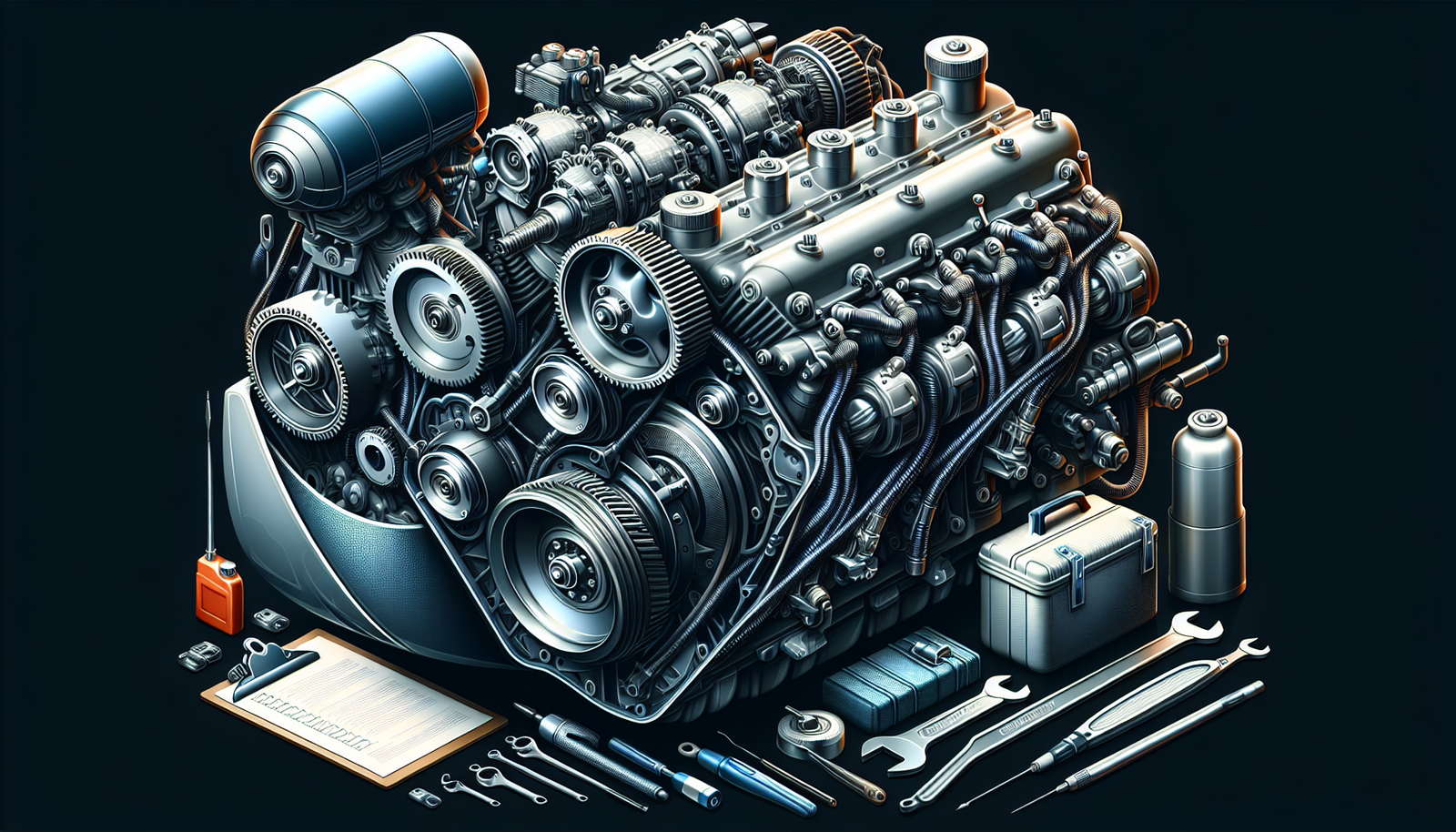If you’re a proud boat owner, it’s crucial to understand the importance of regular Boat engine maintenance. Caring for your boat’s engine isn’t just about keeping it running smoothly on your weekend outings, it’s about ensuring longevity and preventing costly repairs down the line. This article guides you through the ins and out of maintaining your marine engine, from the basics, to troubleshooting, to knowing when it’s time to seek professional assistance. Make your water adventures a little smoother—and safer—with these handy tips and tricks.
Understanding Boat Engine Maintenance
Owning a boat is a fantastic experience that opens up a whole new world of water adventures and relaxing retreats. Whether you are a fishing enthusiast, a water sports lover, or a serene sailor, an essential part of owning a boat is keeping the engine in top shape. This process is known as boat engine maintenance. Keeping your boat engine in peak condition ensures that your boat operates efficiently and safely. So, let’s embark on this sea of knowledge and discover more about boat engine maintenance.
Defining Boat Engine Maintenance
Boat engine maintenance involves an array of tasks performed regularly to keep your boat’s engine running optimally. It includes tasks from simple checks and cleaning, oil changes, to diagnosing technical issues and making necessary repairs.
Types of Boat Engines
There are various types of boat engines, and each requires different types of care. The primary types of boat engines include outboard motors, inboard motors, and stern-drive engines. Each of these engines has unique characteristics that dictate their maintenance needs.
Basic Elements of Boat Engine Maintenance
The basic elements of boat engine maintenance include regular oil changes, fuel system care, cooling system upkeep, belt, cables, and hoses checks, as well as regular engine tuning. Understanding these elements will help you keep your boat in top shape.
The Significance of Regular Boat Engine Maintenance
Understanding the importance of regular boat engine maintenance offers the motivation to do the necessary to keep the boat running smoothly. Here’s why it’s critical.
Increasing Efficiency of Operation
regular engine maintenance guarantees a higher efficiency of operation. With every system function at its best, you can expect optimal fuel efficiency and better overall performance.
Preventing Unforeseen Breakdowns and Repairs
Routine maintenance eliminates the likelihood of unforeseen breakdowns. By spotting and addressing issues at the earliest stage, you can avoid the inconvenience and cost of major repairs.
Prolonging the Lifespan of the Engine
A well-maintained boat engine lasts longer. Regular maintenance prevents wear and tear, thus extending the life expectancy of the engine.
Enhancing Safety While at Sea
Safety should always come first when it comes to anything on the water. A well-maintained boat engine is less likely to breakdown, lowering the risk of being stranded at sea.

Preventive Maintenance Measures
Taking preventive maintenance measures is an effective way of keeping your boat engine in top condition. Below are some tasks that you should carry out regularly.
Regular Engine Oil Changes
Just as with your vehicle, regular oil changes are crucial for your boat engine. It keeps the engine lubricated and prevents overheating.
Fuel System Care
Inspect the fuel system for leaks or damage. Also, keep the fuel clean and use the correct fuel type for your specific engine.
Battery Maintenance
Ensure the battery is clean, fully charged, and securely fastened. Replace it when necessary.
Cooling System Upkeep
Overheating can cause severe damage to your engine. Ensure the cooling system is functioning properly by checking for clogs and using the recommended coolant.
Belt, Cables and Hoses Checks
regularly inspect the belts, cables, and hoses for signs of wear and tear. Replace them when they become worn out or damaged.
Regular Engine Tuning
Engine tuning keeps your boat running at peak performance. This will involve adjusting the carburetor and the ignition system to ensure they’re working efficiently.
In-depth Analysis of Boat Engine Components
A deep understanding of the various components of a boat engine is fundamental in the maintenance process. Let’s examine some of these critical elements.
Function and Maintenance of the Fuel System
The fuel system feeds your engine with the fuel it needs to run. Keep it clean to prevent dirt and water from getting into the engine.
Role and Upkeep of the Cooling System
The cooling system prevents your engine from overheating. Check it routinely for any leaks and always use the recommended antifreeze.
Importance and Preservation of the Lubrication System
The lubrication system keeps the moving parts of your engine well-oiled. Regular oil changes are key to maintaining an effective lubrication system.
Understanding and Maintaining the Electrical System
The electrical system powers your boat’s starting system, lighting, and electronics. Keep the battery clean, charged, and replace when necessary.

Common Boat Engine Issues and Troubleshooting
Even with proper maintenance, you might encounter some common issues with your boat engine.
Issues with Starting the Engine
If the engine doesn’t start, it could be because of a faulty ignition system or a weak battery. Check these areas and fix any anomalies.
Overheating Issues
Overheating could be a result of a malfunctioning coolant system or a broken water pump. Fix any leaks or clogs in the cooling system.
Problems with Fuel Efficiency
If the boat is consuming more fuel than usual, consider tuning up the engine, which often solves the issue.
Troubles with the Boat’s Propulsion
If you’re experiencing propulsion problems, inspect the propeller for any damages.
Engine Oil Problems
If the oil indicator light comes on or the oil pressure drops, check the oil level and add more if necessary. If the problem persists, it might be an issue with the oil pump.
Seasonal Boat Engine Maintenance
Boat engine maintenance also varies with the seasons.
Winterizing Your Boat Engine
Winterize your engine to protect it from the harsh winter conditions. This process involves draining the engine, adding antifreeze, and disconnecting the battery.
Spring Preparation for Boat Engines
After winter, you’ll need to prepare your engine for spring. Refill the coolant, charge the battery, and change the oil if necessary.
Summer Maintenance Tips
In the summer, ensure the cooling system is working optimally to prevent overheating, especially when using the boat frequently.
Fall Boat Engine Checks
Fall can be harsh on the boat engine. Check all the systems meticulously before heading into the water and drain all systems when not using the boat.

Professional vs DIY Boat Engine Maintenance
Maintenance can be done by you or a professional. Each choice has its considerations.
When to Do It Yourself
You can comfortably handle easy tasks such as oil changes, battery inspections, and basic cleaning. Knowing how to do some DIY maintenance can save you a lot of money.
When to Call in Professionals
For advanced issues like engine tuning, electrical fixes, it’s best to call in a professional. Their expertise can help you avoid making costly mistakes.
The Cost Factor
While DIY maintenance can save you money upfront, a professional can spot and correct minor issues before they become major problems which might save you more in the long run.
Skills and Tools Needed for DIY Maintenance
If you choose DIY maintenance, invest in learning the necessary skills and purchasing the proper tools. Make sure to have a boat engine manual handy for guidance.
Costs Involved in Boat Engine Maintenance
The cost of keeping your boat engine running smoothly can significantly vary.
Average Maintenance Cost
The average labor cost for boat engine maintenance can range from $55 to $125 per hour depending on the complexity of the job.
Factors Influencing the Cost
The cost can be influenced by the type and size of the engine, location, and the specifics of the maintenance tasks required. Regular preventative maintenance will likely save you money in the long run.
How to Budget for Boat Engine Maintenance
To avoid surprises, it’s recommended to set aside part of your budget for routine maintenance and unexpected repairs.

The Environmental Impact of Neglected Boat Engine Maintenance
Poorly maintained boat engines do not only affect the performance of your boat but also pose risks to the environment.
Fuel Leaks and Spills
Fuel leaks and spills from a poorly maintained engine can pollute the water and have detrimental effects on marine life.
Air and Noise Pollution
An ill-maintained engine can emit excessive fumes, contributing to air pollution. The noise pollution from a faulty engine can disturb marine life.
Impact on Marine Life
Fuel and oil spills, noise and air pollution can disrupt the habitats and negatively affect fish and other marine organisms thus disrupting the ecosystem.
Implementing an Effective Boat Engine Maintenance Schedule
Having a regular schedule for boat engine maintenance is key to keeping your boat in top condition.
The Importance of Consistency in Maintenance
Consistency in maintenance ensures you spot and fix issues sooner, it ultimately prolongs the life of your boat engine.
Creating a Maintenance Schedule
Create a maintenance schedule that suits your usage patterns and the specific requirements of your boat. This can range from weekly checks to seasonal maintenance tasks.
Following Through on Maintenance Plans
Once you’ve scheduled your maintenance tasks, ensure you follow through with them. Set reminders if necessary, adhering to your maintenance plan will guarantee a healthier boat engine and a safer, peppy water ride for you.
In conclusion, regular boat engine maintenance is a critical part of being a responsible boat owner. It ensures not only your enjoyment of the water but also the safety and longevity of your vessel. Regardless of whether you choose to do it yourself or hire professionals, the key is to keep a consistent schedule and address any issues promptly. Keep your boat cruising on the waives by keeping your engine in top shape. Happy boating!

